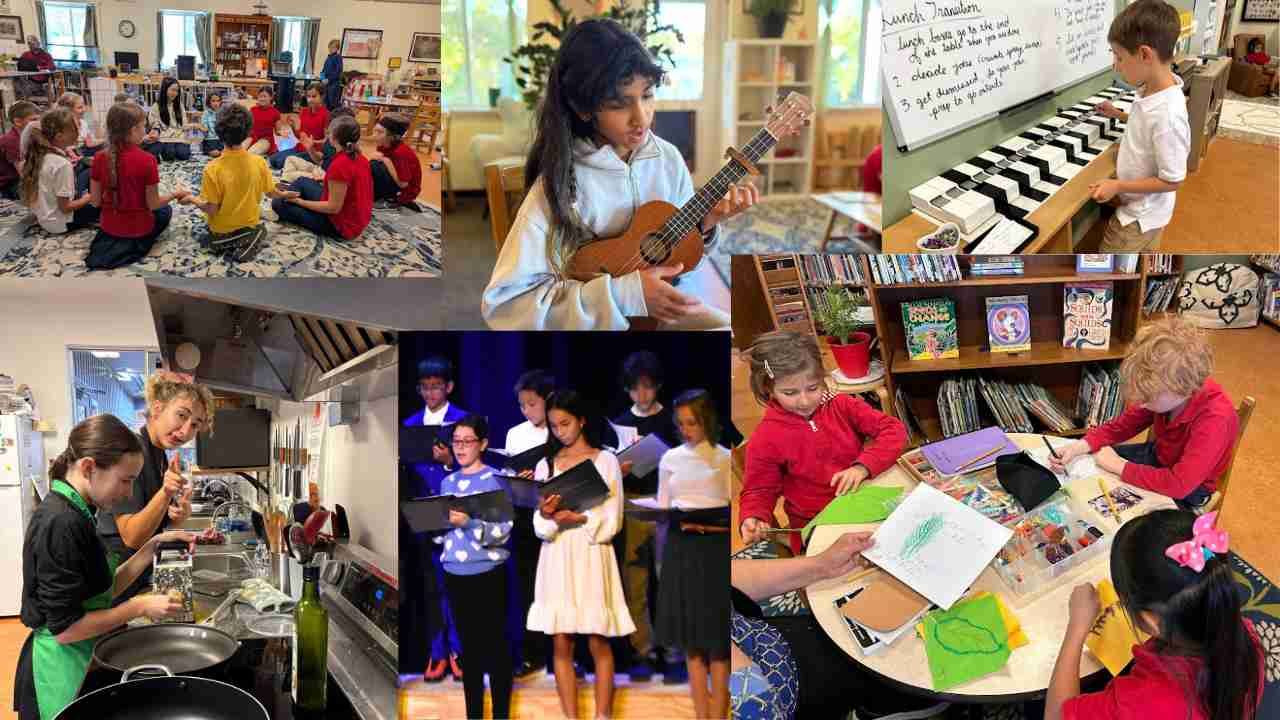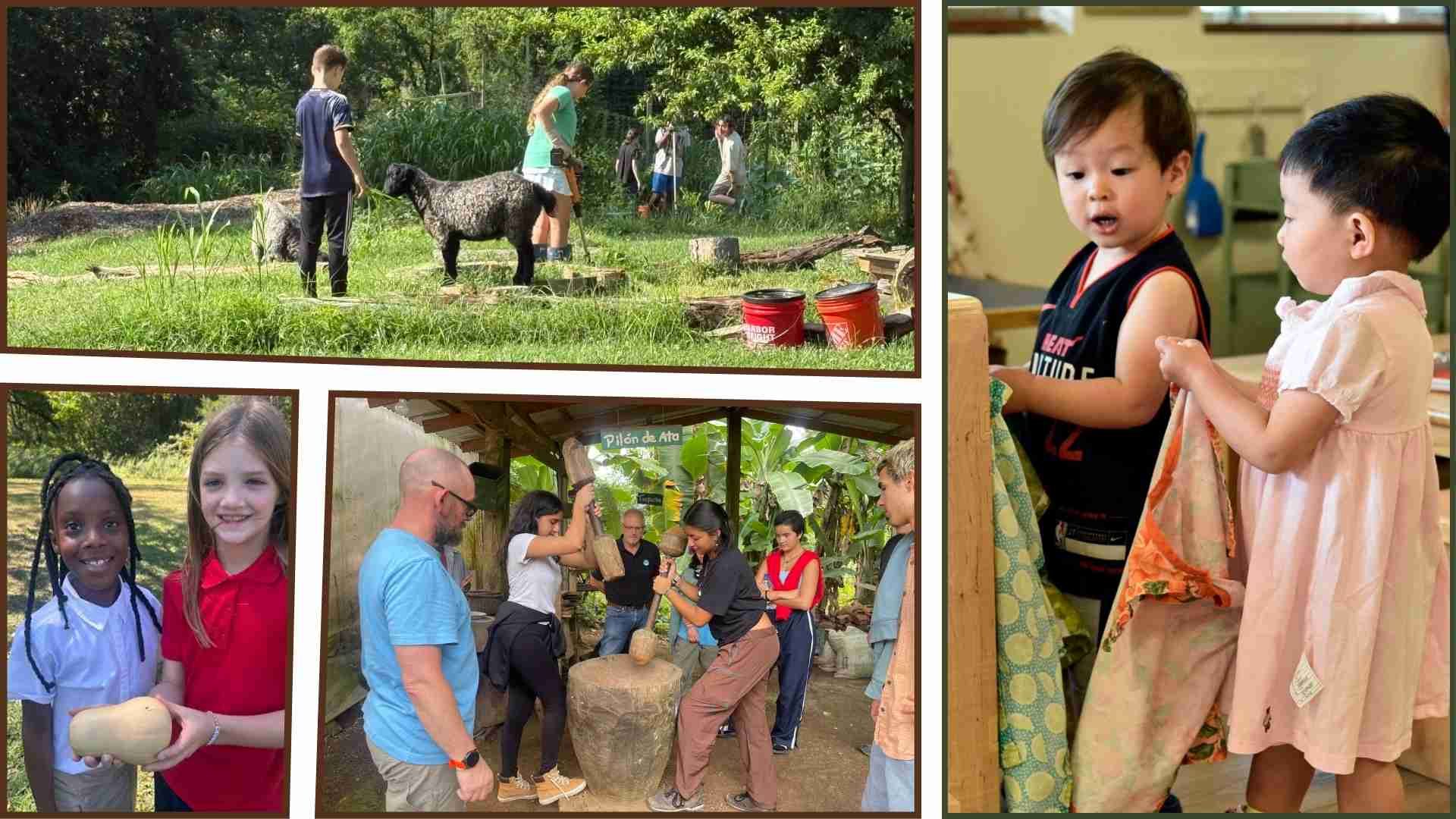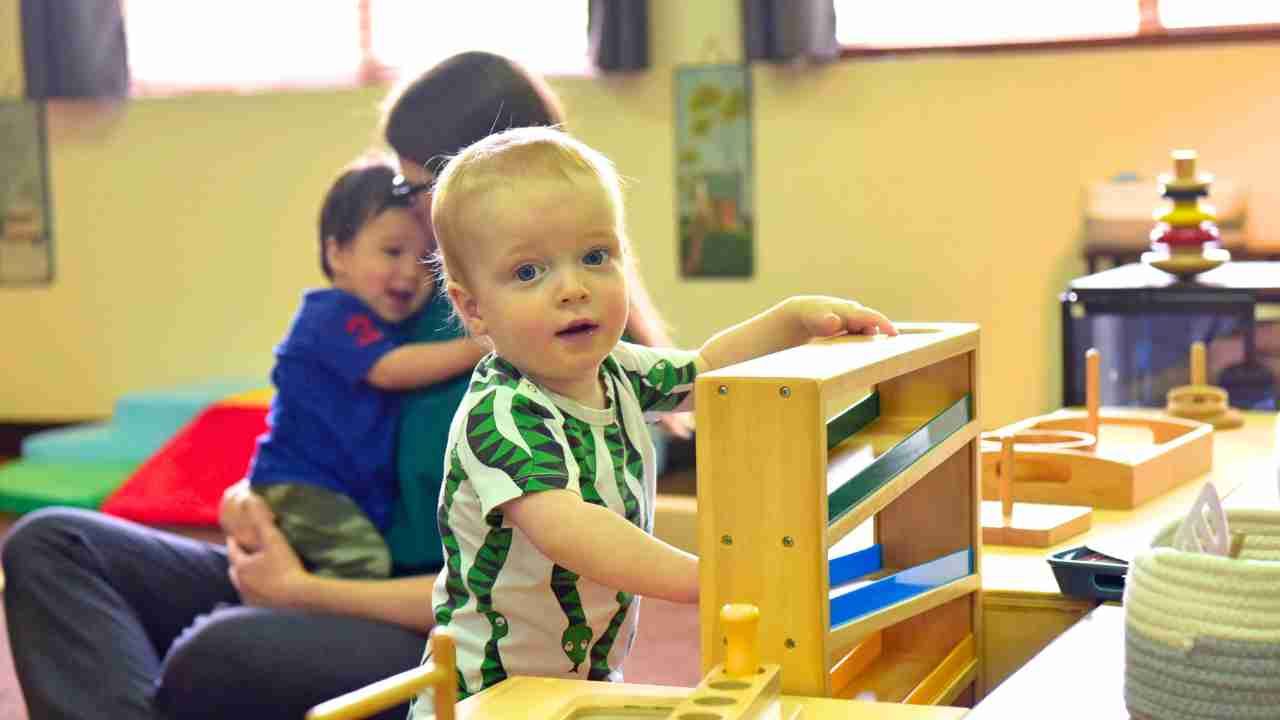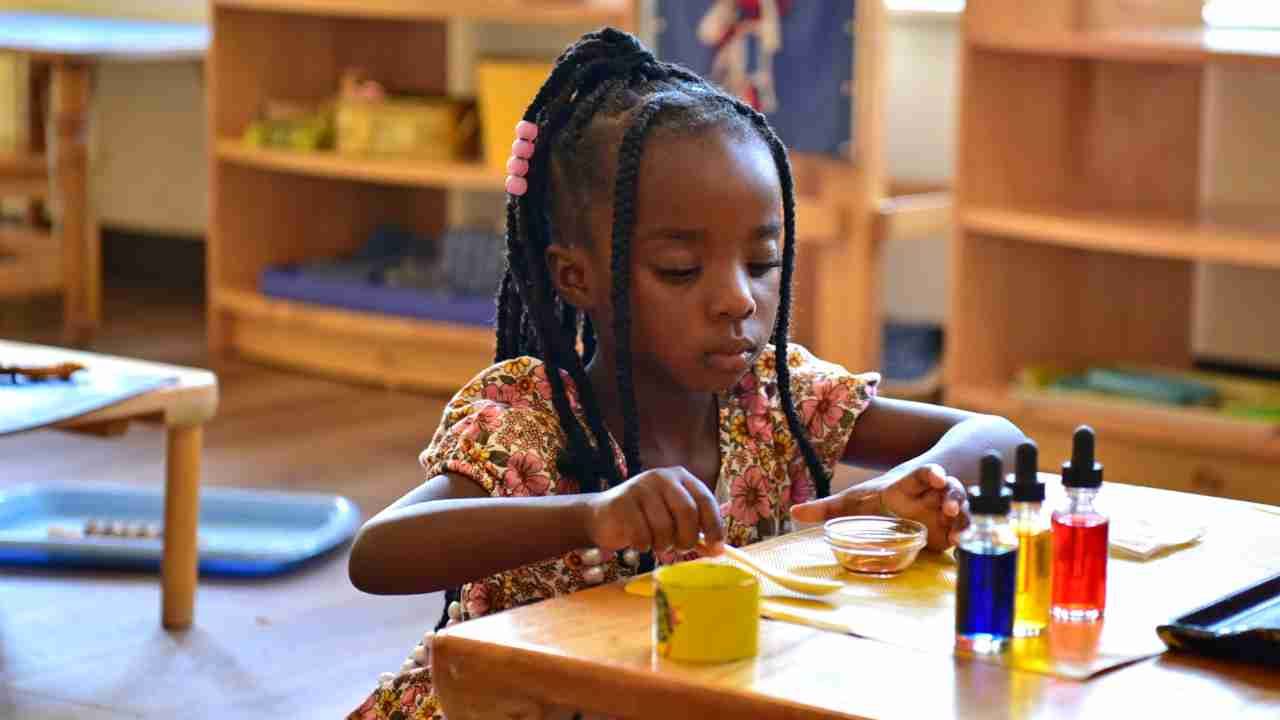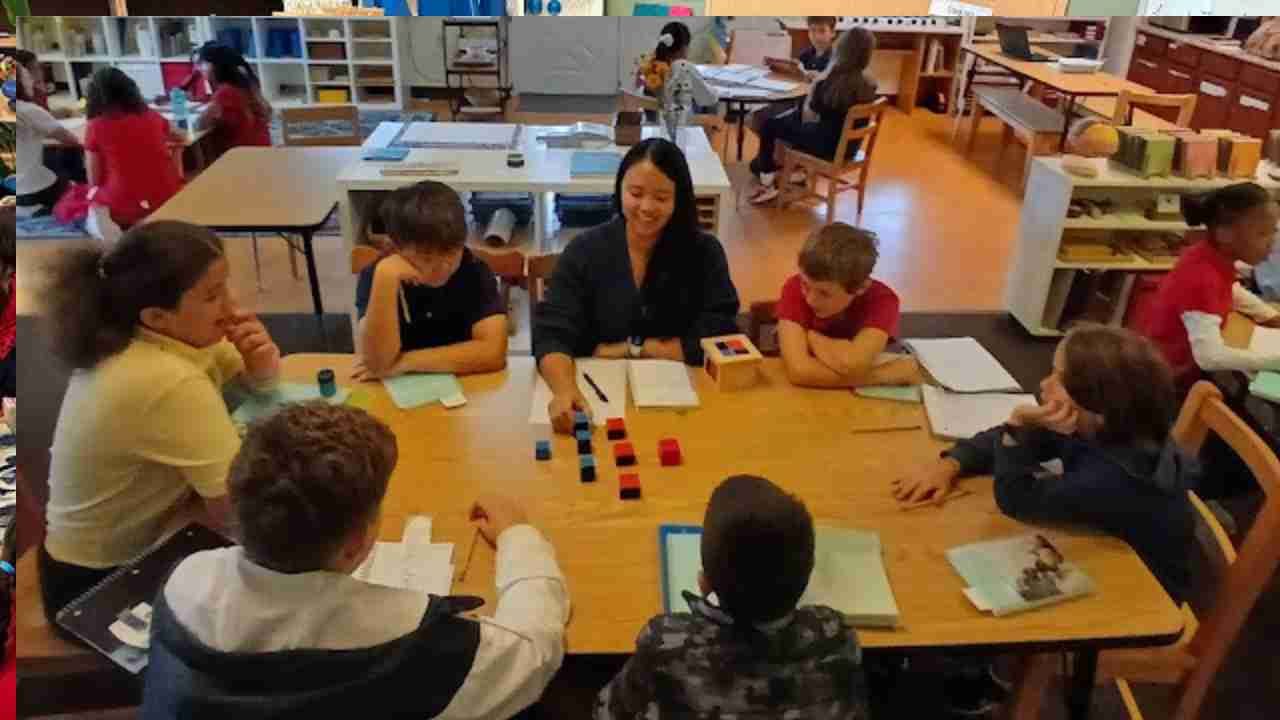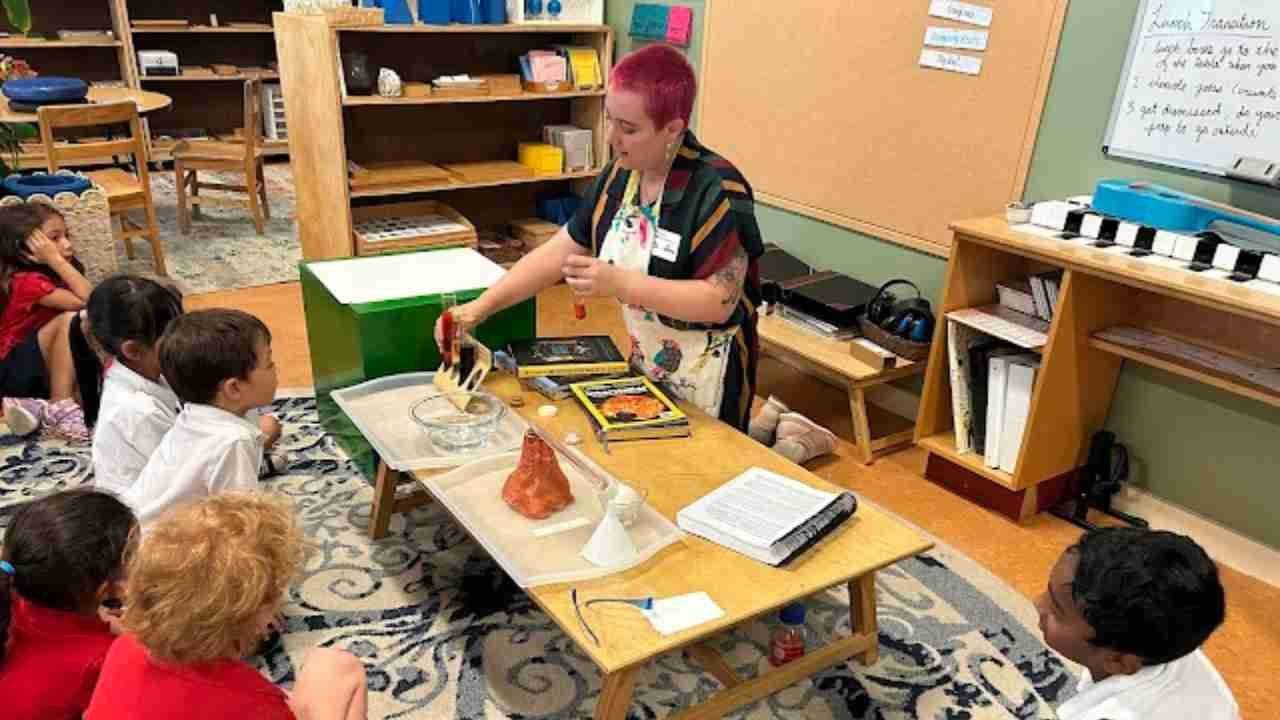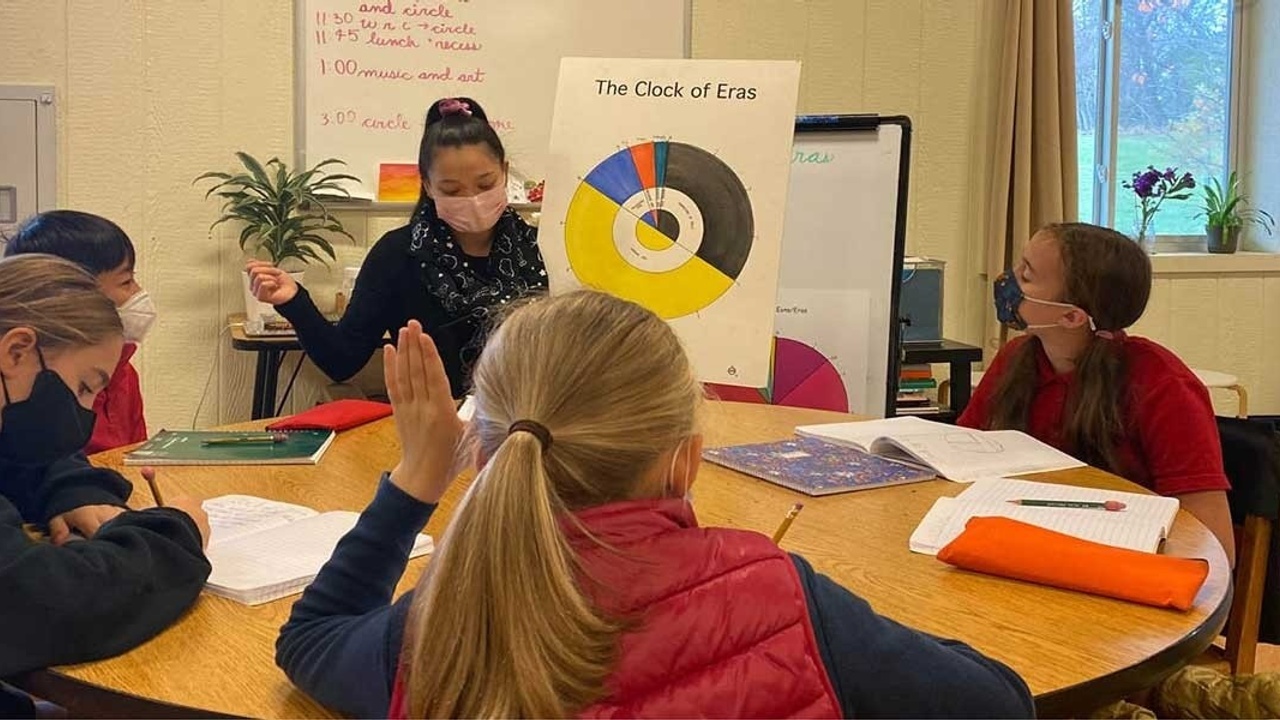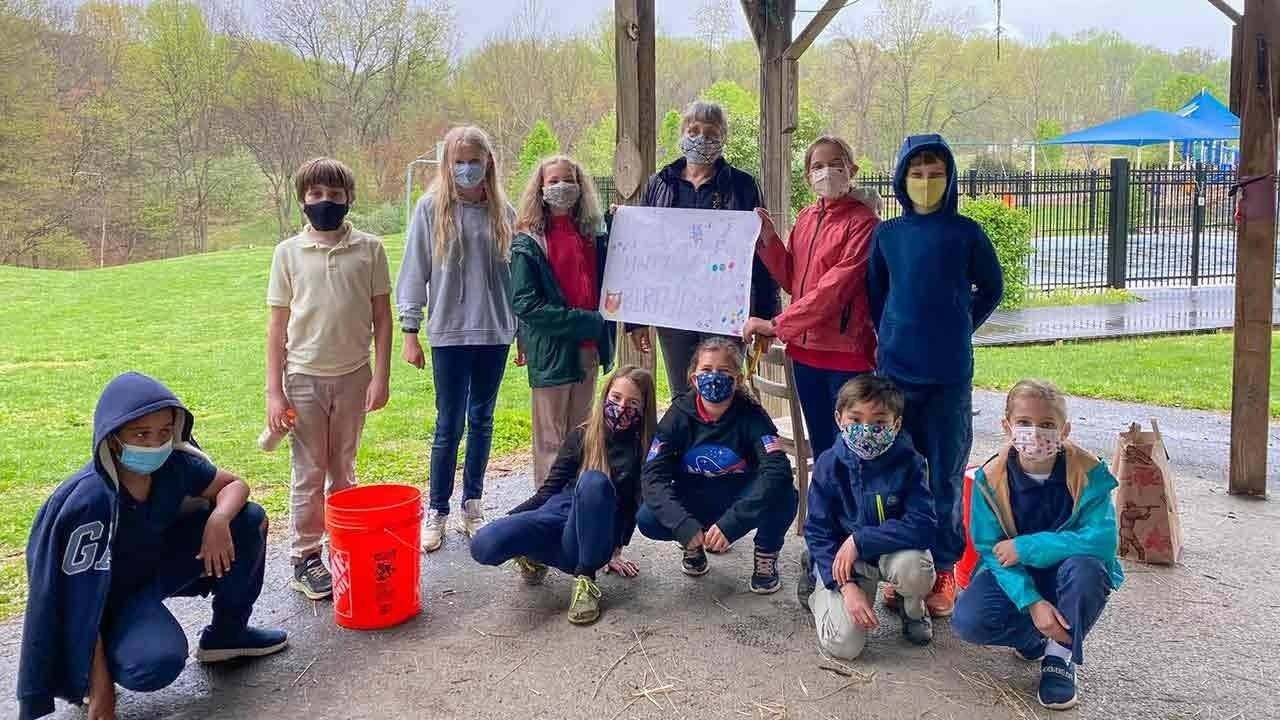Sharing Knowledge
Butler Montessori's mission is to support children to become confident, independent lifelong learners
Art and Music as Creative Expression
At Butler Montessori, art and music are integral to daily classroom life. Whether a child is decorating math work, learning a new song, shaping clay, or painting a backdrop for a school performance, the arts offer opportunities for self-expression, concentration...
Service at Butler Montessori: A Way of Life
At Butler Montessori, service is not a checklist or a single event. It is a way of being. Whether a Primary child is helping a younger friend tie their shoe, an Elementary student is organizing a food drive, or a Fairhaven high schooler is presenting an e...
At Butler Montessori, everything we do begins with a deep respect for how children grow and learn. Dr. Maria Montessori described human development as unfolding through four “planes,” each lasting about six years and characterized by distinct needs, interests, and ways of learning.
The First Plane ...
When parents first visit a Butler Montessori classroom, they are often amazed by the calm, focused energy of even the youngest children. A toddler might be pouring water with great care, a preschooler tracing letters, or another arranging leaves by shape and color. These moments are not accidental. ...
A Story That Sparks Curiosity
In Montessori, math begins not with drills or worksheets, but with a story. The Great Story of the Coming of Numbers introduces children to the origins of mathematics, how early humans invented ways to count, measure, and record the world around them. Children hear how...
Science in Montessori: More Than Textbooks
When parents hear the word science, they often picture lab coats, beakers, and memorizing facts from a textbook. In Montessori, however, science is introduced as something much bigger, richer, and more connected to daily life.
At Butler Montessori, “scien...
In Montessori, we talk about Cosmic Education, where artistic expression weaves seamlessly throughout the curriculum. The Montessori method, renowned for its holistic approach to learning, emphasizes nurturing creativity through the arts. From the earliest stages of development, children are encoura...
In today’s fast-paced world, where technological advancements seem to dominate every aspect of our lives, the value of practical life skills can sometimes be overshadowed. However, at Butler Montessori, located in upper Montgomery County Maryland, these skills are not only emphasized but cherished a...
In the bustling hub of a Montessori classroom, there is an air of discovery that permeates every corner. Children move with purpose, their eyes bright with curiosity as they explore the intricacies of the world around them. Maria Montessori, the visionary educator behind the Montessori Method, under...
Model United Nations (MUN) is a rite of passage for many students throughout the country and often an important milestone in their school careers. It is a beacon of experiential learning that offers students a platform to delve into the complexities of international relations while sharpening their ...
The five Great Stories are an important and unique group of stories that provide the Elementary children with a “big picture” of life and the world around them. The stories lead children to contemplate the past, discover the present, and imagine the future. At the same time, the children develop an ...
“If human unity—which is a fact in nature—is going at last to be organized, it will be done only by an education that will give appreciation of all that has been done by human cooperation.”
~ Dr. Maria Montessori
In this year of considering the aspect of compassion in our daily lives, let’s l...

